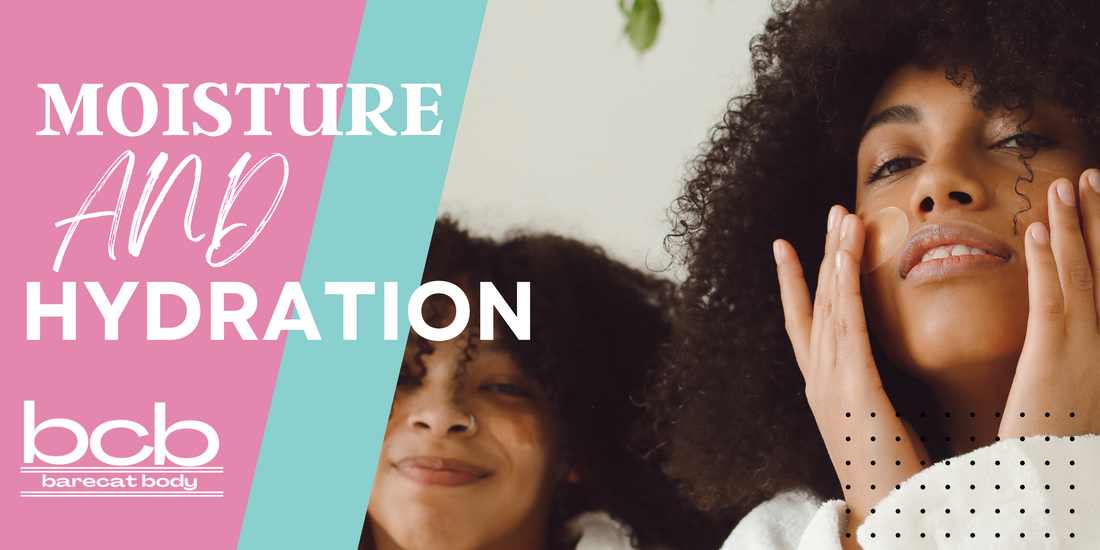
Unveiling the Marvels of 2% Hyaluronic Acid: A Deep Dive into Moisturization and Hydration
Share
In the realm of skincare, few ingredients have garnered as much attention and acclaim as hyaluronic acid. Revered for its exceptional hydrating and moisturizing properties, hyaluronic acid has become a staple in countless beauty products. Among the various concentrations available, the 2% hyaluronic acid formula has emerged as a gold standard for delivering optimal benefits to the skin. In this comprehensive 2500-word blog post, we will embark on an enlightening journey to understand how 2% hyaluronic acid plays a pivotal role in promoting deep moisturization and hydration, unlocking the secrets to achieving a plump, supple, and radiant complexion.
Section 1: Unveiling the Power of Hyaluronic Acid
1.1 Understanding Hyaluronic Acid
Hyaluronic acid is a naturally occurring substance in the body, renowned for its ability to retain water and maintain optimal hydration levels in the skin. As we age, the production of hyaluronic acid diminishes, contributing to the development of fine lines, wrinkles, and a loss of skin elasticity. By incorporating hyaluronic acid into skincare routines, individuals can replenish and enhance the skin's moisture-retaining capabilities.
1.2 The Magic of 2% Concentration
Among the various concentrations available, the 2% hyaluronic acid formulation strikes a delicate balance, providing a potent yet gentle solution for effective hydration. This concentration ensures optimal efficacy without overwhelming the skin, making it suitable for a wide range of skin types, including sensitive and mature skin.
Section 2: Hyaluronic Acid and Moisturization
2.1 Hyaluronic Acid's Unique Molecular Structure
One of the key attributes that sets hyaluronic acid apart is its exceptional ability to hold water. The molecule has a unique structure that can retain water molecules up to 1000 times its weight, creating a reservoir of moisture within the skin. This innate capability makes hyaluronic acid a powerhouse when it comes to moisturization.
2.2 The Moisture-Locking Mechanism
When applied topically, 2% hyaluronic acid forms a hydrating layer on the skin's surface, acting as a magnet for moisture. This layer attracts water from the environment and the underlying layers of the skin, effectively locking in hydration. The result is skin that feels plump, smooth, and thoroughly moisturized.
Section 3: Hyaluronic Acid and Skin Hydration
3.1 Hydration in the Different Skin Layers
Hydration is a fundamental aspect of skin health, influencing not only the outermost layer but also the deeper dermal layers. 2% hyaluronic acid excels in reaching multiple skin layers, ensuring a comprehensive and sustained hydration effect. This penetrative ability contributes to the restoration of the skin's natural moisture balance.
3.2 Hyaluronic Acid's Role in Trans-Epidermal Water Loss (TEWL)
Trans-Epidermal Water Loss, or TEWL, refers to the process by which water evaporates from the skin's surface. 2% hyaluronic acid acts as a barrier, reducing TEWL and preventing excessive water loss. This protective shield helps the skin maintain a constant level of hydration, fostering a healthy and resilient complexion.
Section 4: The Benefits of 2% Hyaluronic Acid
4.1 Diminishing Fine Lines and Wrinkles
As a powerhouse for hydration, 2% hyaluronic acid contributes to the reduction of fine lines and wrinkles. By restoring moisture to the skin, it plumps up the skin's surface, creating a smoother and more youthful appearance. Regular use can lead to long-term improvements in the visible signs of aging.
4.2 Enhanced Elasticity and Firmness
Dehydrated skin often lacks elasticity, resulting in sagging and a loss of firmness. The deep moisturization provided by 2% hyaluronic acid promotes skin elasticity, giving the skin a firmer and more lifted feel. This, in turn, contributes to a rejuvenated and youthful complexion.
4.3 Gentle Hydration for All Skin Types
One of the remarkable features of 2% hyaluronic acid is its versatility. Whether you have oily, dry, combination, or sensitive skin, this concentration offers effective hydration without clogging pores or causing irritation. Its lightweight and non-comedogenic nature make it suitable for everyone, regardless of skin type.
Section 5: Incorporating 2% Hyaluronic Acid into Your Skincare Routine
5.1 Choosing the Right Products
When seeking the benefits of 2% hyaluronic acid, selecting the right skincare products is crucial. Look for serums, creams, or moisturizers that feature this concentration prominently in their formulations. Consider additional ingredients, such as antioxidants or peptides, to enhance the overall efficacy of your skincare routine.
5.2 Layering Techniques
For optimal results, consider incorporating 2% hyaluronic acid into your skincare routine using layering techniques. Apply it to clean, damp skin before heavier creams or oils to maximize its hydrating potential. This ensures that the hyaluronic acid can attract and lock in moisture effectively.
Section 6: Addressing Common Misconceptions
6.1 Myth: Hyaluronic Acid Causes Dryness
Contrary to popular belief, hyaluronic acid does not cause dryness. In fact, when used correctly, it contributes to increased hydration by attracting and retaining moisture. It is essential to apply hyaluronic acid on damp skin and follow up with a moisturizer to seal in the hydration.
6.2 Myth: Hyaluronic Acid is Only for Dry Skin
While hyaluronic acid
Section 1: Unveiling the Power of Hyaluronic Acid
1.1 Understanding Hyaluronic Acid
Hyaluronic acid is a naturally occurring substance in the body, renowned for its ability to retain water and maintain optimal hydration levels in the skin. As we age, the production of hyaluronic acid diminishes, contributing to the development of fine lines, wrinkles, and a loss of skin elasticity. By incorporating hyaluronic acid into skincare routines, individuals can replenish and enhance the skin's moisture-retaining capabilities.
1.2 The Magic of 2% Concentration
Among the various concentrations available, the 2% hyaluronic acid formulation strikes a delicate balance, providing a potent yet gentle solution for effective hydration. This concentration ensures optimal efficacy without overwhelming the skin, making it suitable for a wide range of skin types, including sensitive and mature skin.
Section 2: Hyaluronic Acid and Moisturization
2.1 Hyaluronic Acid's Unique Molecular Structure
One of the key attributes that sets hyaluronic acid apart is its exceptional ability to hold water. The molecule has a unique structure that can retain water molecules up to 1000 times its weight, creating a reservoir of moisture within the skin. This innate capability makes hyaluronic acid a powerhouse when it comes to moisturization.
2.2 The Moisture-Locking Mechanism
When applied topically, 2% hyaluronic acid forms a hydrating layer on the skin's surface, acting as a magnet for moisture. This layer attracts water from the environment and the underlying layers of the skin, effectively locking in hydration. The result is skin that feels plump, smooth, and thoroughly moisturized.
Section 3: Hyaluronic Acid and Skin Hydration
3.1 Hydration in the Different Skin Layers
Hydration is a fundamental aspect of skin health, influencing not only the outermost layer but also the deeper dermal layers. 2% hyaluronic acid excels in reaching multiple skin layers, ensuring a comprehensive and sustained hydration effect. This penetrative ability contributes to the restoration of the skin's natural moisture balance.
3.2 Hyaluronic Acid's Role in Trans-Epidermal Water Loss (TEWL)
Trans-Epidermal Water Loss, or TEWL, refers to the process by which water evaporates from the skin's surface. 2% hyaluronic acid acts as a barrier, reducing TEWL and preventing excessive water loss. This protective shield helps the skin maintain a constant level of hydration, fostering a healthy and resilient complexion.
Section 4: The Benefits of 2% Hyaluronic Acid
4.1 Diminishing Fine Lines and Wrinkles
As a powerhouse for hydration, 2% hyaluronic acid contributes to the reduction of fine lines and wrinkles. By restoring moisture to the skin, it plumps up the skin's surface, creating a smoother and more youthful appearance. Regular use can lead to long-term improvements in the visible signs of aging.
4.2 Enhanced Elasticity and Firmness
Dehydrated skin often lacks elasticity, resulting in sagging and a loss of firmness. The deep moisturization provided by 2% hyaluronic acid promotes skin elasticity, giving the skin a firmer and more lifted feel. This, in turn, contributes to a rejuvenated and youthful complexion.
4.3 Gentle Hydration for All Skin Types
One of the remarkable features of 2% hyaluronic acid is its versatility. Whether you have oily, dry, combination, or sensitive skin, this concentration offers effective hydration without clogging pores or causing irritation. Its lightweight and non-comedogenic nature make it suitable for everyone, regardless of skin type.
Section 5: Incorporating 2% Hyaluronic Acid into Your Skincare Routine
5.1 Choosing the Right Products
When seeking the benefits of 2% hyaluronic acid, selecting the right skincare products is crucial. Look for serums, creams, or moisturizers that feature this concentration prominently in their formulations. Consider additional ingredients, such as antioxidants or peptides, to enhance the overall efficacy of your skincare routine.
5.2 Layering Techniques
For optimal results, consider incorporating 2% hyaluronic acid into your skincare routine using layering techniques. Apply it to clean, damp skin before heavier creams or oils to maximize its hydrating potential. This ensures that the hyaluronic acid can attract and lock in moisture effectively.
Section 6: Addressing Common Misconceptions
6.1 Myth: Hyaluronic Acid Causes Dryness
Contrary to popular belief, hyaluronic acid does not cause dryness. In fact, when used correctly, it contributes to increased hydration by attracting and retaining moisture. It is essential to apply hyaluronic acid on damp skin and follow up with a moisturizer to seal in the hydration.
6.2 Myth: Hyaluronic Acid is Only for Dry Skin
While hyaluronic acid
